- Home
- Cassandra Clare
Clockwork Princess (Infernal Devices, The) Page 3
Clockwork Princess (Infernal Devices, The) Read online
Page 3
“I don’t suppose it would be possible,” said Henry into the silence, “to, er, step on him?”
Gabriel looked at him in disgust. “I searched around the gardens. I found some of the servants. And when I say ‘I found’ some of them, I mean exactly what I say. They had been torn into—into pieces.” He swallowed and looked down at his bloody clothes. “I heard a sound—a high-pitched howling noise. I turned and saw it coming toward me. A great blind worm like a dragon out of a legend. Its mouth was open wide, lined with dagger teeth. I turned and ran for the stables. It slithered after me, but I leaped upon the carriage and drove it out through the gates. The creature—Father—did not follow. I think it fears to be seen by the general populace.”
“Ah,” said Henry. “Too big to be stepped on, then.”
“I shouldn’t have run,” said Gabriel, looking at his brother. “I should have stood and fought the creature. Maybe it could be reasoned with. Maybe Father is in there somewhere.”
“And maybe it would have bitten you in half,” said Will. “What you are describing, the transformation into a demon, is the last stage of the pox.”
“Will!” Charlotte threw up her hands. “Why didn’t you say so?”
“You know, the books on demon pox are in the library,” Will said with an injured tone. “I wasn’t preventing anyone from reading them.”
“Yes, but if Benedict was going to turn into an enormous serpent, you’d think you could at least have mentioned it,” said Charlotte. “As a matter of general interest.”
“First,” said Will, “I didn’t know he was going to turn into a gigantic worm. The end stage of demon pox is turning into a demon. It could have been any sort. Second, it takes weeks for the transformation process to occur. I would have thought even a certified idiot like Gabriel here would have taken account of it and notified someone.”
“Notified who?” asked Jem, not unreasonably. He had moved closer to Tessa as the conversation had continued. As they stood side by side, the backs of their hands brushed.
“The Clave. The postman. Us. Anyone,” said Will, shooting an irritated look at Gabriel, who was starting to get some color back and looked furious.
“I am not a certified idiot—”
“Lack of certification hardly proves intelligence,” Will muttered.
“And as I told you, Father locked himself in his study for the past week—”
“And you didn’t think to take any special notice of that?” said Will.
“You don’t know our father,” said Gideon in the flat tone of voice he used sometimes when conversation about his family was inescapable. He turned back to his brother and put his hands on Gabriel’s shoulders, speaking quietly, in measured tones none of them could hear.
Jem, beside Tessa, hooked his smallest finger through hers. It was a habitual affectionate gesture, one that Tessa had grown used to over the past months, enough that she sometimes put out her hand without thinking when he was standing by her. “Is that your wedding dress?” he asked under his breath.
Tessa was saved answering by the appearance of Bridget, carrying gear, and Gideon suddenly turning to the rest of them and saying, “Chiswick. We must go. Gabriel and I, if no one else.”
“Go alone?” Tessa said, startled enough to speak out of turn. “But why would you not call upon others to come with you—”
“The Clave,” said Will, his blue eyes keen. “He doesn’t want the Clave to know about his father.”
“Would you?” said Gabriel hotly. “If it were your family?” His lip curled. “Never mind. It’s not as if you know the meaning of loyalty—”
“Gabriel.” Gideon’s voice was a reprimand. “Do not speak to Will in that manner.”
Gabriel looked surprised, and Tessa could hardly blame him. Gideon knew of Will’s curse, of the belief that had caused his hostility and his abrupt manners, as all in the Institute did, but the story was private to them, and none outside had been told of it.
“We will come with you. Of course we will come with you,” said Jem, releasing Tessa’s hand and stepping forward. “Gideon did us a service. We have not forgotten, have we, Charlotte?”
“Of course not,” said Charlotte, turning. “Bridget, the gear—”
“I am conveniently already in gear,” said Will as Henry shucked off his coat and traded it for a gear jacket and a weapons belt; Jem did the same, and suddenly the entryway was full of motion—Charlotte speaking quietly to Henry, her hand hovering just above her stomach. Tessa looked away from the private moment and saw a dark head bent with a fair one. Jem was at Will’s side with his stele drawn, tracing a rune on the side of Will’s throat. Cecily looked at her brother and scowled.
“I, too, am conveniently already in gear,” she announced.
Will jerked his head up, causing Jem to make a sound of annoyed protest. “Cecily, absolutely not.”
“You have no right to tell me yes or no.” Her eyes flashed. “I am going.”
Will jerked his head toward Henry, who shrugged apologetically. “She does have the right. She has trained for nearly two months—”
“She’s a little girl!”
“You were doing the same at fifteen,” said Jem quietly, and Will spun back toward him. For a moment everyone seemed to hold their breath, even Gabriel. Jem’s gaze held Will’s, steadily, and not for the first time Tessa had the sense of unspoken words passing between them.
Will sighed and half-closed his eyes. “Tessa will be wanting to come next.”
“Of course I am coming,” Tessa said. “I may not be a Shadowhunter, but I too have trained. Jem is not going without me.”
“You are in your wedding dress,” Will protested.
“Well, now that you’ve all seen it, I can’t possibly wear it to be married in,” said Tessa. “Bad luck, you know.”
Will groaned something in Welsh—unintelligible, but clearly the tone of a man defeated. Across the room Jem cast Tessa a slight, worried smile. The Institute door swung open then, letting a blaze of autumn sunlight into the entryway. Cyril stood on the threshold, breathless.
“The second carriage is now ready,” he said. “Who’ll be coming, then?”
To: Consul Josiah Wayland
From: The Council
Dear Sir,
As you are doubtless aware, your term of service as Consul, after ten years, is coming to an end. The time has come to appoint a successor.
As for ourselves, we are giving serious consideration to the appointment of Charlotte Branwell, née Fairchild. She has done good work as the head of the London Institute, and we believe her to have your stamp of approval, as she was appointed by you after the death of her father.
As your opinion and esteem are to us of the highest value, we would appreciate any thoughts that you might have on the matter.
Yours with the highest regards,
Victor Whitelaw, Inquisitor, on behalf of the Council
2
THE CONQUEROR WORM
And much of Madness, and more of Sin,
And Horror the soul of the plot.
—Edgar Allan Poe, “The Conqueror Worm”
As the Institute’s carriage rolled through the gates of Lightwood House in Chiswick, Tessa was able to appreciate the place as she had not the first time she had been there, in the dead of night. A long gravel road flanked by trees led up to an immense white house with a circular drive in front of it. The house bore a strong resemblance to sketches she had seen of the classical temples of Greece and Rome with its strong, symmetrical lines and clean columns. There was a carriage drawn up before the steps, and gravel paths spread out through a network of gardens.
And lovely gardens they were. Even in October they were a riot of blooms—late-flowering red roses and chrysanthemums in bronze-orange, yellow, and dark gold bordered neat paths that wandered through the trees. As Henry drew their carriage to a stop, Tessa stepped out of the carriage, helped by Jem, and heard the sound of water: a stream, she suspected, divert
ed to run through the gardens. It was such a lovely place, she could hardly associate it in her mind with the same location where Benedict had held his devilish ball, though she could see the path that wound around the side of the house that she had taken that night. It led to a wing of the house that looked as if it had been recently added. . . .
The Lightwood carriage rolled up behind them, driven by Gideon. Gabriel, Will, and Cecily spilled out. The Herondale siblings were still arguing with each other as Gideon climbed down, Will illustrating his points with bold sweeps of his arms. Cecily was scowling at him, the furious expression on her face making her look so much like her brother that it would, under other circumstances, have been amusing.
Gideon, even paler than before, turned in a circle, his blade unsheathed in his hand.
“Tatiana’s carriage,” he said shortly as Jem and Tessa reached him. He pointed toward the vehicle drawn up by the steps. Its doors were both open. “She must have decided to pay a call.”
“Of all the times . . .” Gabriel sounded furious, but his green eyes were sick with fear. Tatiana was their sister, recently married. The coat of arms on the carriage, a wreath of thorns, must have been the symbol of her husband’s family, Tessa thought. The group stood frozen, watching, as Gabriel moved to the carriage, slipping a long sabre from his belt. He leaned in the door, and cursed aloud.
He pulled back, his eyes meeting Gideon’s. “There’s blood on the seats,” he said. “And . . . this stuff.” He prodded at a wheel with the tip of the sabre; when he drew it away, a long thread of stinking slime trailed from it.
Will whipped a seraph blade from his coat and called aloud, “Eremiel!” As it began to blaze, a pale white star in the autumn light, he pointed first north, then south. “The gardens run all round the house, down to the river,” he said. “I ought to know—I chased the demon Marbas all up through here one night. Wherever Benedict is, I doubt he’ll leave these grounds. Too much of a chance of being seen.”
“We’ll take the west side of the house. You take the east,” said Gabriel. “Shout if you see anything and we’ll converge.”
Gabriel cleaned his blade on the gravel of the drive, stood, and followed his brother around the side of the house. Will headed the other way, followed by Jem, with Cecily and Tessa just behind them. Will paused at the corner of the house, scanning the gardens with his gaze, alert for any unusual sight or sound. A moment later, he beckoned for the others to follow.
As they moved forward, the heel of Tessa’s shoe caught on one of the loose bits of gravel beneath the hedges. She stumbled, and immediately righted herself, but Will glanced back, and scowled. “Tessa,” he said. There had been a time when he had called her Tess, but no longer. “You shouldn’t be with us. You’re not prepared. At least wait in the carriage.”
“I shan’t,” said Tessa mutinously.
Will turned back to Jem, who appeared to be hiding a smile. “Tessa’s your fiancée. You make her see sense.”
Jem, holding his sword-cane in one hand, moved across the gravel to her. “Tessa, do it as a favor to me, could you?”
“You don’t think I can fight,” Tessa said, drawing back and matching his silvery gaze with her own. “Because I’m a girl.”
“I don’t think you can fight because you’re wearing a wedding dress,” said Jem. “For what it’s worth, I don’t think Will could fight in that dress either.”
“Perhaps not,” said Will, who had ears like a bat’s. “But I would make a radiant bride.”
Cecily raised her hand to point into the distance. “What’s that?”
All four of them whirled to see a figure racing toward them. The sunlight was directly ahead, and for a moment, as Tessa’s eyes adjusted, all she saw was a blur. The blur quickly resolved itself into the figure of a running girl. Her hat was gone; her light brown hair flew on the wind. She was tall and bony, dressed in a bright fuchsia dress that had probably once been elegant but was now torn and bloodstained. She continued shrieking as she barreled toward them and threw herself into Will’s arms.
He staggered backward, nearly dropping Eremiel. “Tatiana—”
Tessa couldn’t quite tell if Will pushed her away or she drew back on her own, but either way Tatiana moved an inch or so away from Will, and Tessa could see her face for the first time. She was a narrow, angular girl. Her hair was sandy like Gideon’s, her eyes green like Gabriel’s, and she might have been pretty had her face not borne the lines of pinched disapproval. Even though she was tearstained and gasping, there was something theatrical about it, as if she were aware of all eyes on her—especially Will’s.
“A great monster,” she wept. “A creature—it seized darling Rupert from the carriage and made off with him!”
Will pushed her a bit farther away. “What do you mean ‘made off with him’?”
She pointed. “Th-there,” she sobbed. “It dragged him to the Italian gardens. He managed to elude its maw at first, but it harried him through the paths. No matter how much I screamed, it would not put him d-down!” She burst into a fresh wave of tears.
“You screamed,” Will said. “Is that all you did?”
“I screamed a great deal.” Tatiana sounded injured. She drew fully away from Will and fixed him with a green gaze. “I see you are as ungenerous as you ever were.” Her eyes skated to Tessa, Cecily, and Jem. “Mr. Corstairs,” she said stiffly, as if they were at a garden party. Her eyes narrowed as they fell on Cecily. “And you—”
“Oh, in the name of the Angel!” Will pushed past her; Jem, with a smile at Tessa, followed.
“You cannot be other than Will’s sister,” said Tatiana to Cecily as the boys vanished into the distance. Tessa she pointedly ignored.
Cecily looked at her incredulously. “I am, though I cannot imagine what difference it makes. Tessa—are you coming?”
“I am,” Tessa said, and joined her; whether Will wanted her there or not—or Jem either—she could not watch the two of them walk into danger and not want to be where they were. After a moment she heard Tatiana’s reluctant footsteps on the gravel behind her.
They were moving away from the house, toward the formal gardens half-hidden behind their high hedges. In the distance sunlight sparked off a wood-and-glass greenhouse with a cupola on the roof. It was a fine autumn day: There was a brisk wind, the smell of leaves in the air. Tessa heard a rustle and glanced at the house behind her. Its smooth white facade rose high, broken only by the arches of balconies.
“Will,” she whispered as he reached up and unlocked her hands from around his neck. He drew her gloves off, and they joined her mask and Jessie’s pins on the stone floor of the balcony. He pulled off his own mask next and cast it aside, running his hands through his damp black hair, pushing it back from his forehead. The lower edge of the mask had left marks across his high cheekbones, like light scars, but when she reached to touch them, he gently caught at her hands and pressed them down.
“No,” he said. “Let me touch you first. I have wanted . . .”
Blushing furiously, Tessa pulled her gaze away from the house and the memories it contained. The group had reached a gap in the hedges on their right. Through it what was clearly “the Italian garden” was visible, ringed round by foliage. Within the circle the garden was lined with rows of statuary depicting classical heroes and figures of myth. Venus poured water from an urn in a central fountain, while statues of great historians and statesmen—Caesar, Herodotus, Thucydides—regarded each other with blank eyes across the walkways that radiated out from the central point. There were also poets and playwrights. Tessa, hurrying along, passed Aristotle, Ovid, Homer—his eyes bound with a stone mask to indicate his blindness—Virgil and Sophocles, before an earsplitting scream rent the air.
She whirled around. Several feet behind her Tatiana was standing stock-still, her eyes bulging out of her head. Tessa dashed back toward her, the others on her heels; she reached the girl first, and Tatiana caught at her blindly, as if forgetting for the moment who
Tessa was. “Rupert,” Tatiana moaned, staring ahead of her, and Tessa, following her gaze, saw a man’s boot protruding from behind a hedge. She thought for a moment that he must have been lying stunned upon the ground, the rest of his body hidden by foliage, but as she leaned forward, she realized that the boot—and the several inches of gnawed-upon, bloody flesh that protruded from the boot’s opening—were all there was to see.
“A forty-foot worm?” Will muttered to Jem as they moved through the Italian garden, their boots—thanks to a pair of Soundless runes—making no noise on the gravel. “Think of the size of the fish we could catch.”
Jem’s lips twitched. “It’s not funny, you know.”
“It is a bit.”
“You cannot reduce the situation to worm jokes, Will. This is Gabriel and Gideon’s father we’re discussing.”
“We’re not just discussing him; we’re chasing him through an ornamental sculpture garden because he’s turned into a worm.”
“A demonic worm,” said Jem, pausing to peer cautiously around a hedgerow. “A great serpent. Would that help your inappropriate humor?”
“There was a time when my inappropriate humor brought you a certain amusement,” sighed Will. “How the worm has turned.”
“Will—”
Jem was interrupted by an earsplitting scream. Both boys spun, in time to see Tatiana Blackthorn reel backward into Tessa’s arms. Tessa caught the other girl, supporting her, as Cecily moved toward a gap in the hedges, whipping a seraph blade from her belt with the ease of a practiced Shadowhunter. Will did not hear her speak, but the blade sprang up in her hand, lighting her face and setting a sick blaze of dread alight in Will’s stomach.

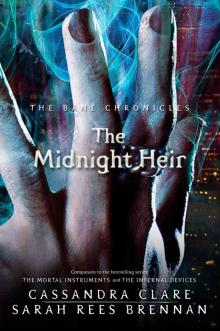 The Midnight Heir
The Midnight Heir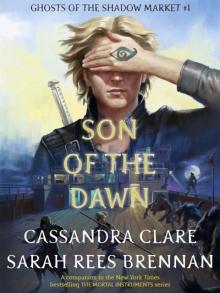 Son of the Dawn
Son of the Dawn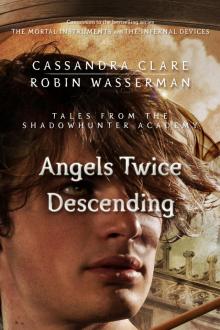 Angels Twice Descending
Angels Twice Descending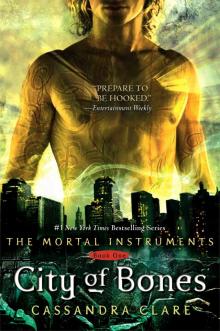 City of Bones
City of Bones Vampires, Scones, and Edmund Herondale
Vampires, Scones, and Edmund Herondale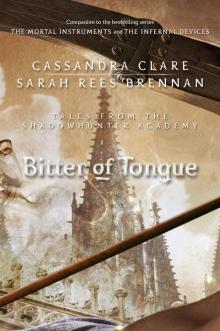 Bitter of Tongue
Bitter of Tongue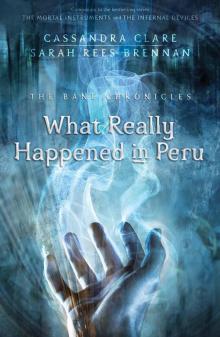 What Really Happened in Peru
What Really Happened in Peru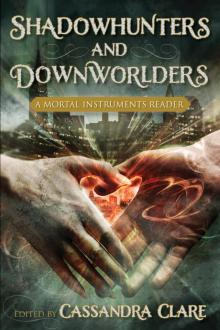 Shadowhunters and Downworlders
Shadowhunters and Downworlders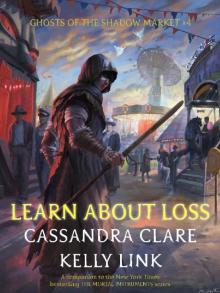 Learn About Loss
Learn About Loss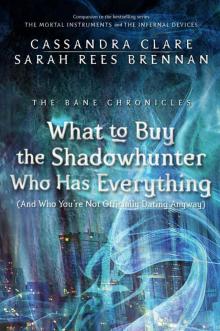 What to Buy the Shadowhunter Who Has Everything
What to Buy the Shadowhunter Who Has Everything Welcome to Shadowhunter Academy
Welcome to Shadowhunter Academy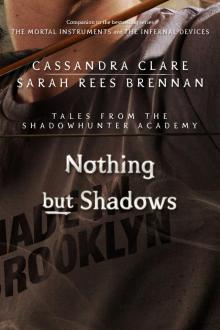 Nothing but Shadows
Nothing but Shadows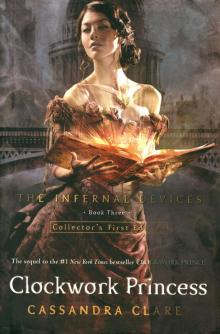 Clockwork Prince
Clockwork Prince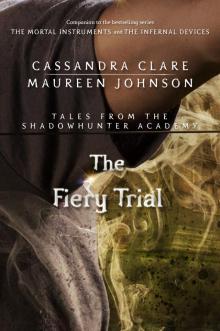 The Fiery Trial
The Fiery Trial City of Glass
City of Glass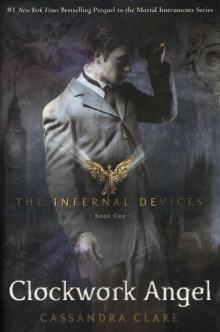 Clockwork Angel
Clockwork Angel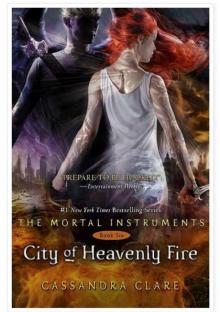 City of Heavenly Fire
City of Heavenly Fire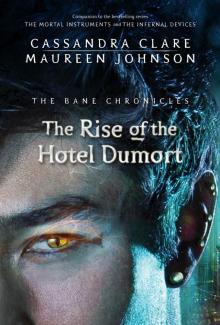 The Rise of the Hotel Dumort
The Rise of the Hotel Dumort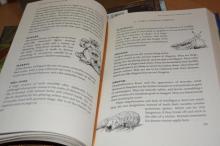 The Shadowhunters Codex
The Shadowhunters Codex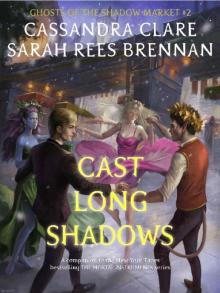 Cast Long Shadows
Cast Long Shadows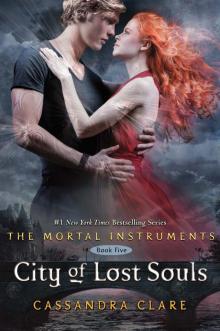 City of Lost Souls
City of Lost Souls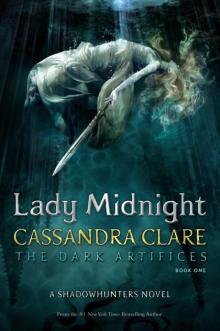 Lady Midnight
Lady Midnight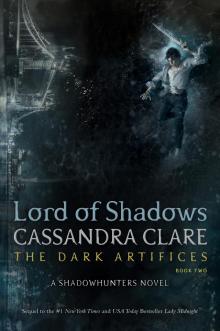 Lord of Shadows
Lord of Shadows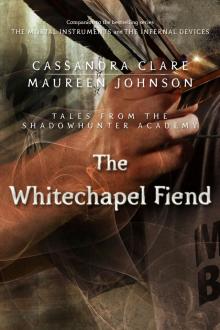 The Whitechapel Fiend
The Whitechapel Fiend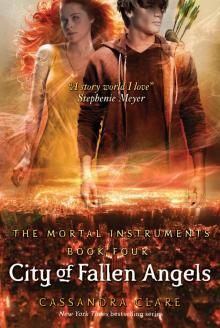 City of Fallen Angels
City of Fallen Angels Clockwork Princess
Clockwork Princess Queen of Air and Darkness
Queen of Air and Darkness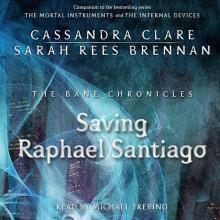 Saving Raphael Santiago
Saving Raphael Santiago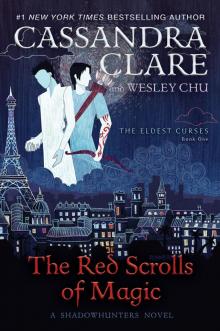 The Red Scrolls of Magic
The Red Scrolls of Magic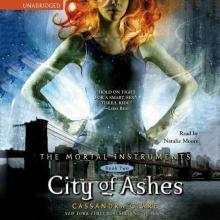 City of Ashes
City of Ashes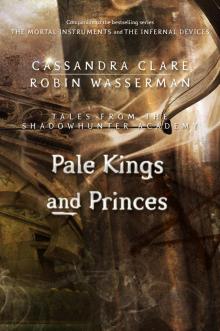 Pale Kings and Princes
Pale Kings and Princes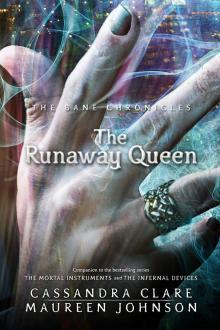 The Runaway Queen
The Runaway Queen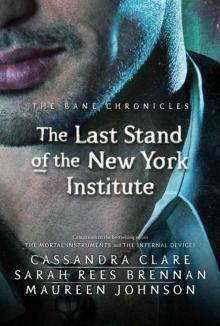 The Last Stand of the New York Institute
The Last Stand of the New York Institute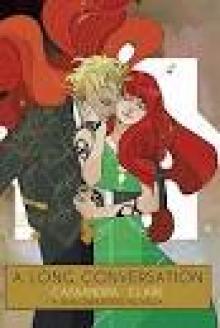 A Long Conversation (The Shadowhunter Chronicles)
A Long Conversation (The Shadowhunter Chronicles)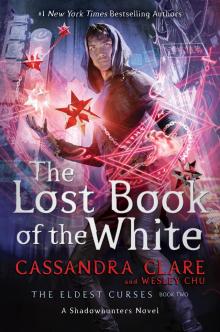 The Lost Book of the White
The Lost Book of the White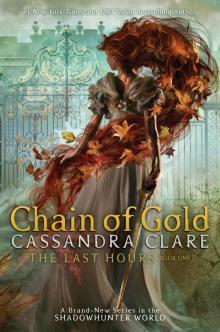 Chain of Gold
Chain of Gold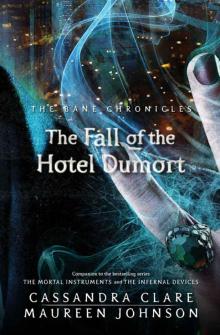 The Fall of the Hotel Dumort
The Fall of the Hotel Dumort Born to Endless Night
Born to Endless Night The Lost Herondale
The Lost Herondale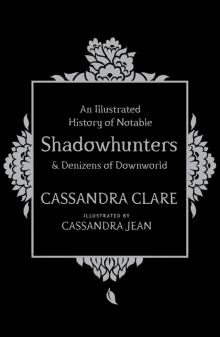 An Illustrated History of Notable Shadowhunters & Denizens of Downworld
An Illustrated History of Notable Shadowhunters & Denizens of Downworld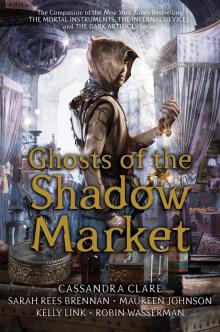 Ghosts of the Shadow Market
Ghosts of the Shadow Market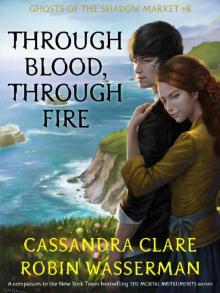 Through Blood, Through Fire
Through Blood, Through Fire Every Exquisite Thing
Every Exquisite Thing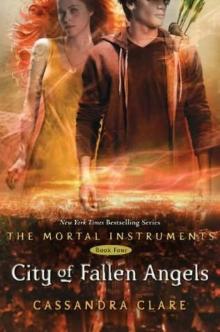 City of Fallen Angels mi-4
City of Fallen Angels mi-4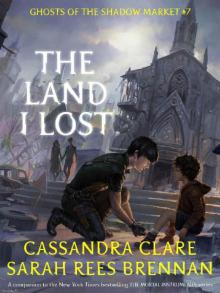 The Land I Lost (Ghosts of the Shadow Market Book 7)
The Land I Lost (Ghosts of the Shadow Market Book 7) Queen of Air and Darkness (The Dark Artifices #3)
Queen of Air and Darkness (The Dark Artifices #3)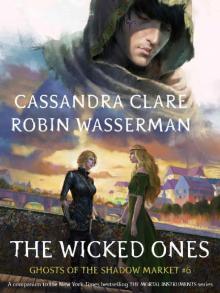 The Wicked Ones (Ghosts of the Shadow Market Book 6)
The Wicked Ones (Ghosts of the Shadow Market Book 6)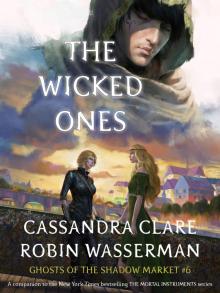 The Wicked Ones
The Wicked Ones A Deeper Love
A Deeper Love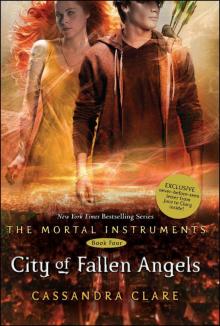 City of Fallen Angels (4)
City of Fallen Angels (4)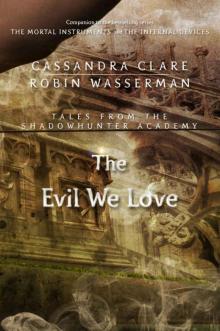 The Evil We Love (Tales from the Shadowhunter Academy Book 5)
The Evil We Love (Tales from the Shadowhunter Academy Book 5) Vampires, Scones, and Edmund Herondale tbc-3
Vampires, Scones, and Edmund Herondale tbc-3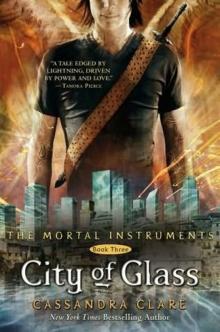 City of Glass mi-3
City of Glass mi-3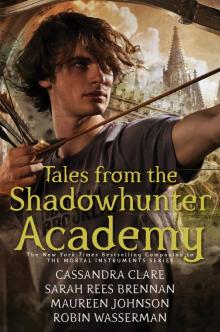 Tales from the Shadowhunter Academy
Tales from the Shadowhunter Academy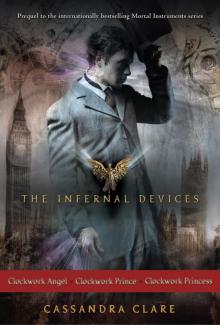 The Infernal Devices Series
The Infernal Devices Series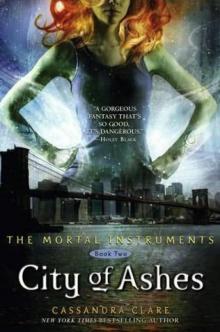 City of Ashes mi-2
City of Ashes mi-2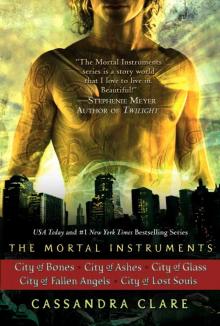 Cassandra Clare: The Mortal Instruments Series
Cassandra Clare: The Mortal Instruments Series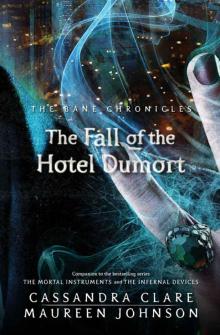 The Bane Chronicles 7: The Fall of the Hotel Dumort
The Bane Chronicles 7: The Fall of the Hotel Dumort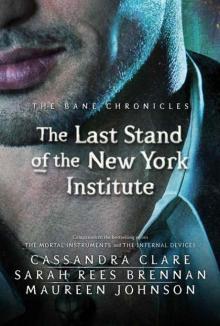 The Last Stand of the New York Institute (The Bane Chronicles)
The Last Stand of the New York Institute (The Bane Chronicles)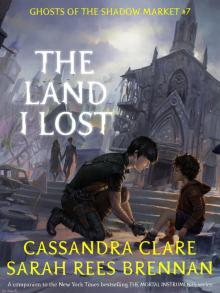 The Land I Lost
The Land I Lost![Saving Raphael Santiago - [Bane Chronicles 06] Read online](http://i1.bookreadfree.com/i1/04/03/saving_raphael_santiago_-_bane_chronicles_06_preview.jpg) Saving Raphael Santiago - [Bane Chronicles 06]
Saving Raphael Santiago - [Bane Chronicles 06] Clockwork Angel tid-1
Clockwork Angel tid-1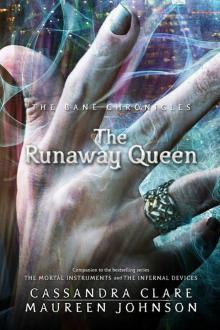 The Runaway Queen tbc-2
The Runaway Queen tbc-2 The Bane Chronicles
The Bane Chronicles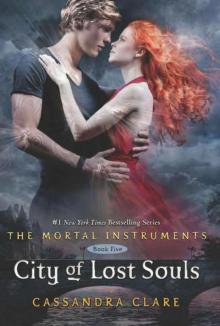 City of Lost Souls mi-5
City of Lost Souls mi-5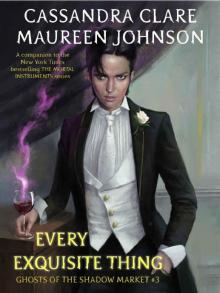 Every Exquisite Thing (Ghosts of the Shadow Market Book 3)
Every Exquisite Thing (Ghosts of the Shadow Market Book 3) Shadowhunter’s Codex
Shadowhunter’s Codex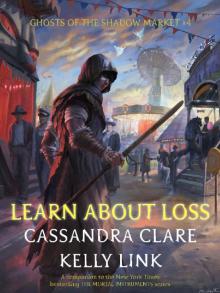 Learn About Loss (Ghosts of the Shadow Market Book 4)
Learn About Loss (Ghosts of the Shadow Market Book 4) Welcome to Shadowhunter Academy (Tales from the Shadowhunter Academy Book 1)
Welcome to Shadowhunter Academy (Tales from the Shadowhunter Academy Book 1)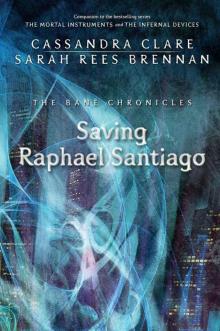 Saving Raphael Santiago tbc-6
Saving Raphael Santiago tbc-6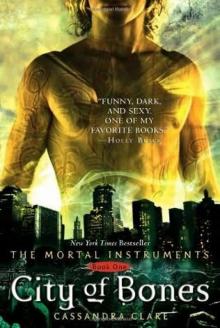 City of Bones mi-1
City of Bones mi-1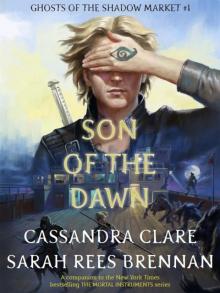 Ghosts of the Shadow Market Book 1_Son of the Dawn
Ghosts of the Shadow Market Book 1_Son of the Dawn Clockwork Princess (Infernal Devices, The)
Clockwork Princess (Infernal Devices, The) Clockwork Prince tid-2
Clockwork Prince tid-2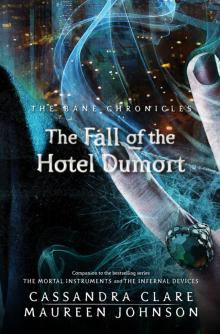 No Immortal Can Keep a Secret
No Immortal Can Keep a Secret A Deeper Love (Ghosts of the Shadow Market Book 5)
A Deeper Love (Ghosts of the Shadow Market Book 5) The Course of True Love (and First Dates)
The Course of True Love (and First Dates)